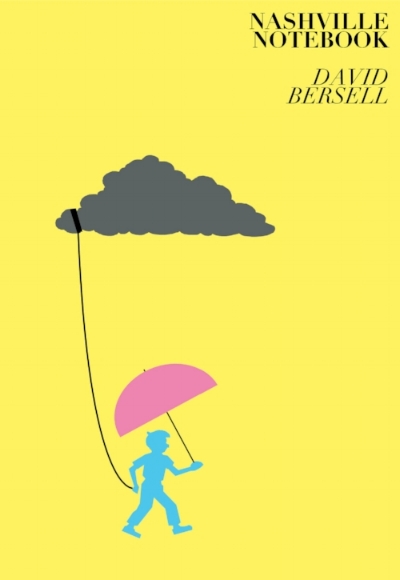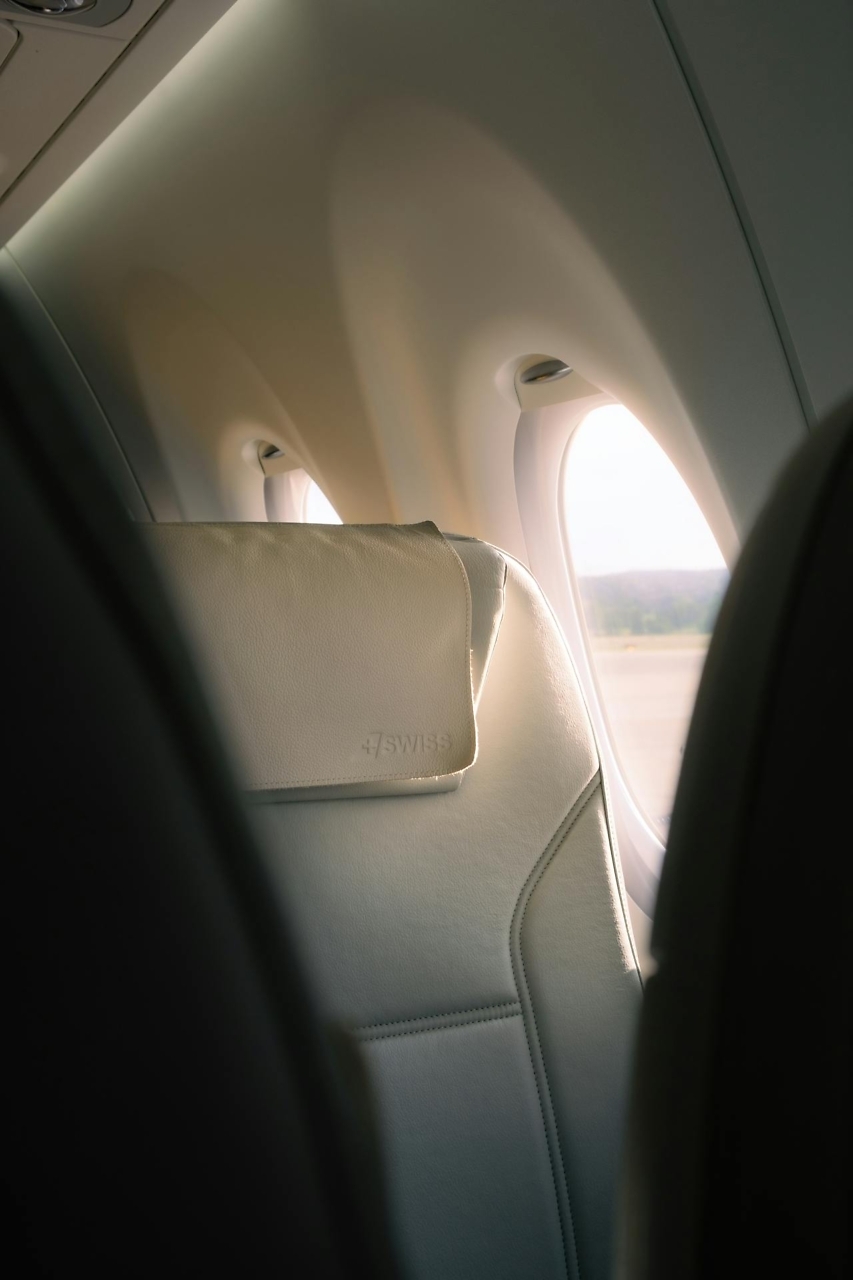Common Yellowthroat
During the spring migration of 1965, a teenager’s unhappy parents finally find common ground
My parents presented as birders when I was nearly sixteen. In my teenaged self-absorption I totally missed the run-up to this life change. I was shocked, embarrassed, to find them sporting binoculars and staring raptly into the trees. One day they were normal. The next day they weren’t.
 In every other way, my father was the mid-1960s, white-collared, fedora-wearing norm. An accountant, he worked for Swift & Co. in a little office behind the Purina feed plant at Airways and Lamar in Memphis, near Katz Drug Store and the neon cat sign. His office had a bank of mainframe computers, each one as big as a doublewide file cabinet. Because the computers needed to be cool, he worked in air-conditioning.
In every other way, my father was the mid-1960s, white-collared, fedora-wearing norm. An accountant, he worked for Swift & Co. in a little office behind the Purina feed plant at Airways and Lamar in Memphis, near Katz Drug Store and the neon cat sign. His office had a bank of mainframe computers, each one as big as a doublewide file cabinet. Because the computers needed to be cool, he worked in air-conditioning.
At home he had an old wooden clipboard upon which he began recording each bird he identified for the first time—what birders call a “life bird.” After he entered the life bird’s name in his precise handwriting—all caps, black ink—he shellacked over the entry to preserve it forever. Birding satisfied his need to record and verify, to keep lists, to work on something solid, like his paint-by-number portrait of a blue jay. It was a natural precursor to his later obsession with stamp and coin collections, crossword puzzles (which he could do in ink), basically anything that involved a blank space he could fill with the correct answer.
My father had a kind of warm and steady hum that never varied. It seemed that nothing could touch him or hurt him on any really vital level. He was too far away. He hardly ever spoke. He might smile, remotely, around the stem of his pipe, but he did not speak, even at home. That was why I preferred to be with him. He didn’t pay any attention to me. He didn’t watch me or worry about me or have horrible thoughts. He was just there, so I could just be there, with him, as myself.
Which brings us to my mother, Virginia, a high-school Spanish teacher for whom books were like a drug. Her constant criticism had effectively shut my father down. She watched me and worried about me and had horrible thoughts about me. But when the binoculars appeared, birding took my mother out of her self-constructed cage, got her nose out of her books. It relieved her boredom and satisfied her intellectual ambition, her need to know more than everyone else. Birding soothed her restless heart and troubled mind.
 It also appealed to her love of nature. She once raised an injured blue jay that had fallen out of the nest when he was barely fledged. We named him Whiskey after a jay in a book I was reading, and every few hours my mother fed him—chopped egg and dog food—with tweezers. He survived avian infancy and lived for about five years. Although he was too crippled to fly, he could flutter up to perch on my mother’s shoulders and fingers.
It also appealed to her love of nature. She once raised an injured blue jay that had fallen out of the nest when he was barely fledged. We named him Whiskey after a jay in a book I was reading, and every few hours my mother fed him—chopped egg and dog food—with tweezers. He survived avian infancy and lived for about five years. Although he was too crippled to fly, he could flutter up to perch on my mother’s shoulders and fingers.
In all things and at all times, my mother was complex and unreliable. One minute she would be sitting on the front steps of our house, gently passing a lacewing from her finger to mine, letting me feel the touch of its tiny insect feet, or showing me how to pop the seeds out of four o’clock blossoms. The next moment she might bitterly inform me that she had never wanted me, never wanted a second child. This was old news, part of my life. She said it regularly, sometimes along with, “But I loved you after you arrived,” and sometimes not. For most of my childhood I assumed that all mothers had deeply ambivalent feelings about their children. By sixteen I was beginning to realize that in this respect my mother was unusual.
For most of my life to that point, I had paid almost no attention to my parents’ private lives. They were just there, usually a deterrent to whatever it was I wanted to do, like spending the night with friends or going on dates with disreputable boys. But our three lives intersected the spring I was sixteen, the spring when they started watching birds and I, learner’s permit in hand, started to drive.
We spent Sunday mornings at St. Mary’s Cathedral, downtown. After church we always went out to lunch, but that spring we added something else to the Sunday ritual. We would head down Front Street, which turned into Florida Street, turn west on McLemore, and then drive out onto President’s Island, a scrubby industrial peninsula in the Mississippi River in the shadow of what was then the Premcor oil refinery.
My father would drive down the levee onto a gravel road, stop, and I would take the wheel. My mother rode shotgun; he got in the back. They leaned out the windows, binoculars clamped to their eyes, peering intently into the spindly trees that were alive with birds like darting jewels—gold, red, orange. I would happily depress the gas pedal, and we would inch along the crunching gravel at a stately five or six miles per hour until, every few feet, one or the other of my parents screamed, “Stop, Stop.”
“Stop, stop, I’ve got something,”
“I see it. All yellow, black mask.”
I’d wait, listening to the fluttering of the bird guide.
“Common Yellowthroat.”
The book would pass from hand to hand.
“Yes, no question. What a darling! A little bandit.”
I’d glance at the bird and be forced to admit that yes, they were beautiful, especially that tiny bandit yelling “witchety, witchety” at us.
“Okay, go on.”
I’d press the gas pedal.
“Wait! Stop, what’s that?”
“Redstart, look.”
“No, no, it didn’t have that red there. It was more yellow.”
“That’s the female, see?”
“Are you sure? Oops, there it goes. I’m not sure.”
“Well, I’m listing it.”
That was always my father. My mother actually didn’t care much about lists. My father wanted to fill in the blanks. I’d roll my eyes and press the pedal.
“Wait! Wait! I’ve got something else! There, half-way up that tree with the white flowers.”
“Don’t see it.”
“Second big branch, then out to the left.”
“Got it!”
 And so it went. Hours behind the wheel, week after week, on President’s Island in the spring migration of 1965. Many times I thought if they screeched “Stop!” one more time, I’d kill them. I didn’t even notice that my mother had dialed back her carping, or that my father was talking.
And so it went. Hours behind the wheel, week after week, on President’s Island in the spring migration of 1965. Many times I thought if they screeched “Stop!” one more time, I’d kill them. I didn’t even notice that my mother had dialed back her carping, or that my father was talking.
The list on the clipboard grew longer. My father turned it over and started on the back. He forgot to use the same ink. The columns narrowed, his handwriting shrank. Spring moved into summer, and the smell of petroleum and rot from the riverbanks intensified. The mosquitoes were too thick to bear inching through the swamp with the windows open. The warblers moved on to the upper Midwest and Canada and raised their young. I got my driver’s license and left my parents in the rear-view mirror.
That spring my mother was forty-five, and my father was forty-seven. My brother was in graduate school, and I was a year from finishing high school. They were so close to being free they must have felt the wind lifting their wings.
When school was out that year, I went to camp in Hardy, Arkansas, for six weeks. My parents flew to Spain for a month. My mother took a course at the University of Madrid and let my father drink wine at dinner. My brother stayed home with our collie and drove through the Delta selling pesticides to cotton farmers for Swift’s agricultural and chemical division. When he came back in the evenings, the old Ford he drove was covered with thick yellow dust.
The next year, 1966, my mother was diagnosed with breast cancer and had her first radical mastectomy. She was too sick to bird that spring. That summer, my father was transferred to Chicago. I spent my senior year in alien territory, lurking in the basement of our townhouse and listening to Bob Dylan and Simon & Garfunkel. I didn’t make a single friend, didn’t have a single date, although one day in biology class I did inadvertently give everyone a big laugh when I asked my lab partner, in my dripping Memphis accent, whether my microscope lens was “fixing to hit” the slide.
My mother taught eighth grade, her demonic students totally unlike the crafty, superficially well-behaved Southern kids. Her colleagues cursed openly, lobbing f-bombs that my mother took as a personal attack. My father commuted an hour each way to the Loop and endured his first Yankee winter, snot freezing on his moustache, as he navigated the maze of heated lobbies from the Chicago & Northwestern train station to the Union Tank Car Building. So another year passed without binoculars raised to the sky. Instead, I read aloud to them all three volumes of The Lord of the Rings.
That fall, 1967, I went to college. My brother drove me from Mount Prospect to Evanston and dropped me and my battered footlocker off at Northwestern’s Willard Hall.
I didn’t think about birds again for years and years.

Lyda Phillips is a veteran journalist who grew up in Memphis and has earned degrees from Northwestern, Columbia, and Vanderbilt universities. The author of two young-adult novels, she worked for United Press International before returning to Nashville.

